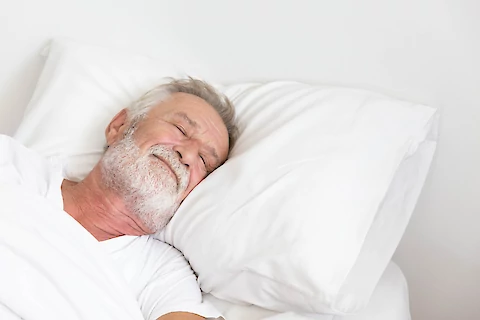
The Effects of Undersleeping and Oversleeping on Senior Health
Good sleep is essential for seniors. The elderly need 7 to 9 hours of sleep nightly, yet many have difficulty getting good sleep. However, there are many reasons why good sleep is elusive to seniors. It's important to address the issue, as undersleeping and oversleeping in seniors may affect their physical and mental health.
Good Sleep is Essential
A good night's sleep is restorative. It allows the body to heal and contributes to emotional well-being. When seniors don't get enough sleep, they are at greater risk for falls and accidents, memory problems and forgetfulness, irritability, as well as depression. Poor sleeping may also be caused by medications, chronic pain, and even boredom.
Too much sleep, on the other hand, can lead to low energy and brain fog. In fact, napping excessively during the day and sleeping over 9 hours a night can have similar health effects as not getting enough sleep. Excessive sleep has also been linked to an elevated risk of Alzheimer's Disease.
Getting Healthy Sleep
Seniors need to understand why they aren't getting good sleep. An excellent first step is looking at their medications. Taking some medication at different times of the day may eliminate their effects on nighttime sleeping. Additionally, a good bedtime routine often contributes to better sleep.
Helpful habits include:
- Keeping electronics out of the bedroom.
- Limiting daytime napping.
- Keeping the room at a cooler temperature.
- Keeping the bedroom as a space only for sleeping.
- Integrating an exercise routine into the day.
Evening habits can also contribute to healthier sleep, including:
- Keeping a regular sleep schedule.
- Eating lighter evening meals.
- Avoiding alcohol and caffeine.
- Using low lighting.
- Avoiding screens, such as smartphones or tablets.
Often, simple changes in routines are enough to prevent undersleeping and oversleeping in seniors.
Getting to Sleep
Laying in bed, wide awake is frustrating and contributes to a bad night's sleep. So here are some ideas the elderly can try to get to sleep faster:
- Counting Sheep. Counting, which occupies the mind, often leads to sleep.
- Mindfulness. Seniors can practice mindfulness while laying in bed. They can start by feeling their body's weight, listening to their breathing, and allowing relaxation to spread from their toes to their nose.
- Aromatherapy. Spritzing a light lavender scent in the room may also contribute to falling asleep faster.
Tracking Sleep
Knowing good sleep health is critical for seniors to manage their rest effectively. In fact, there are many options for trackers; some are wearable, while others are not. Wearable devices, including those worn on the wrist or the finger, usually display collected information on an app accessible on a smartphone.
Other sleep monitors sit on or under the mattress, gathering data that is interpreted and available on an app. A good tracker will effectively monitor heart and respiration rate, awake time, snoring, interruptions in sleep time, and more. In fact, the Sleep Foundation has an excellent resource for sleep trackers to help seniors decide what's best for them.
Senior Helpers Can Provide In-Home Care Services for Your Loved Ones
Good sleep contributes to seniors' wellness here in Asheville, Hendersonville, Arden, and Fletcher areas, making them healthier and happier. If you or a senior loved one is in need of in-home or companionship services, Senior Helpers is the experts to call. We are a premier provider of in-home care dedicated to supporting aging in place. Contact us today to learn more about our services.